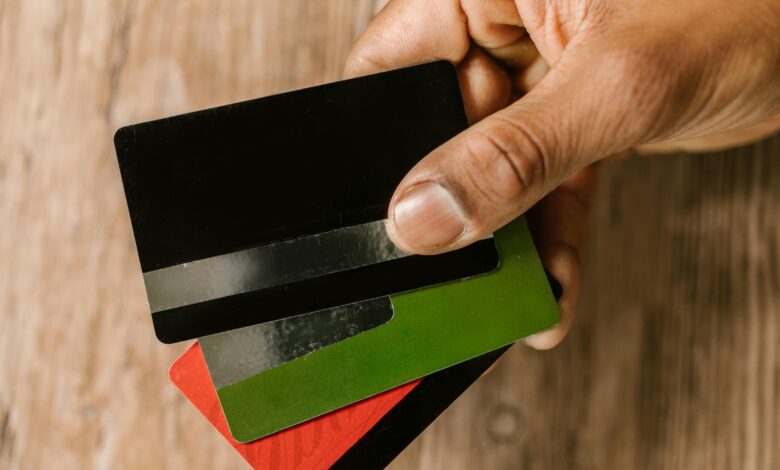The Pros and Cons of Using Credit Cards: A Comprehensive Guide

Credit cards have become an integral part of modern financial life. They offer convenience, flexibility, and a range of benefits that can enhance your purchasing power. However, like any financial tool, credit cards come with their own set of advantages and disadvantages. In this article, we will explore the pros and cons of using credit cards in detail, helping you make informed decisions about whether they are the right financial tool for you.
The Pros of Using Credit Cards
1. Convenience and Accessibility
One of the most significant advantages of credit cards is their convenience. Unlike carrying large amounts of cash or writing checks, credit cards allow you to make purchases quickly and easily. Whether you’re shopping online, traveling internationally, or dining out, credit cards provide a seamless payment method. Additionally, many credit cards are accepted worldwide, making them an ideal choice for travelers.
2. Building Credit History
Using a credit card responsibly can help you build a strong credit history. Your credit score plays a crucial role in determining your eligibility for loans, mortgages, and even rental agreements. By consistently paying your credit card bills on time and keeping your credit utilization low, you can improve your credit score over time. This can open doors to better financial opportunities in the future.
3. Rewards and Perks
Many credit cards offer rewards programs that provide cashback, travel points, or discounts on purchases. For example:
- Cashback Cards : These cards give you a percentage of your spending back as cash rewards.
- Travel Rewards Cards : These cards allow you to earn points that can be redeemed for flights, hotel stays, or other travel-related expenses.
- Retail Rewards Cards : Some cards partner with specific retailers to offer discounts or exclusive deals.
Additionally, many credit cards come with perks such as extended warranties, purchase protection, and access to exclusive events or lounges.
4. Fraud Protection and Security
Credit cards offer robust fraud protection compared to debit cards or cash. If your credit card is lost or stolen, most issuers provide zero-liability policies, meaning you won’t be held responsible for unauthorized transactions. Furthermore, credit card companies monitor your account for suspicious activity and can alert you to potential fraud.
5. Emergency Financial Backup
Credit cards can serve as a financial safety net during emergencies. Whether it’s an unexpected medical bill, car repair, or home maintenance issue, having a credit card can provide immediate access to funds when you need them most. This can be particularly helpful if you don’t have sufficient savings to cover unforeseen expenses.
6. Interest-Free Periods
Most credit cards offer an interest-free grace period, typically ranging from 21 to 25 days. During this time, you can make purchases without incurring interest charges as long as you pay your balance in full by the due date. This feature allows you to use your credit card like an interest-free loan for short-term needs.
The Cons of Using Credit Cards
1. High Interest Rates
One of the biggest drawbacks of credit cards is their high interest rates. If you carry a balance from month to month, the interest charges can quickly add up, making it difficult to pay off your debt. Many credit cards have annual percentage rates (APRs) ranging from 15% to 25%, which can significantly increase the cost of your purchases over time.
2. Debt Accumulation
Credit cards make it easy to overspend, leading to debt accumulation. The ability to “buy now, pay later” can encourage impulsive spending habits, especially if you’re not disciplined about tracking your expenses. Over time, mounting credit card debt can lead to financial stress and negatively impact your credit score.
3. Annual Fees and Hidden Charges
While some credit cards have no annual fees, others charge fees that can range from $50 to several hundred dollars per year. Additionally, there may be hidden charges such as foreign transaction fees, late payment fees, and balance transfer fees. These costs can erode the value of any rewards or benefits you receive from the card.
4. Impact on Credit Score
While responsible credit card use can improve your credit score, irresponsible use can have the opposite effect. Missing payments, maxing out your credit limit, or applying for multiple cards in a short period can lower your credit score. A poor credit score can limit your ability to secure loans or favorable interest rates in the future.
5. Temptation to Overspend
The ease of swiping a credit card can lead to overspending. Unlike cash, which provides a tangible sense of spending, credit cards can create a disconnect between your spending habits and your actual financial situation. This can result in impulse purchases and lifestyle inflation, where your expenses gradually increase beyond your means.
6. Potential for Fraud
While credit cards offer fraud protection, they are also a prime target for scammers and hackers. Data breaches and phishing scams can compromise your personal information, leading to unauthorized transactions. Even with fraud protection, resolving these issues can be time-consuming and stressful.
Tips for Responsible Credit Card Use
To maximize the benefits of credit cards while minimizing their drawbacks, consider the following tips:
- Pay Your Balance in Full : Avoid carrying a balance to prevent interest charges and reduce the risk of debt accumulation.
- Monitor Your Spending : Keep track of your purchases to ensure you stay within your budget.
- Choose the Right Card : Select a credit card that aligns with your spending habits and offers rewards or perks that benefit you.
- Avoid Unnecessary Fees : Be mindful of annual fees, foreign transaction fees, and other charges associated with your card.
- Limit the Number of Cards : Having too many credit cards can make it difficult to manage your finances and increase the risk of overspending.
- Review Statements Regularly : Check your monthly statements for errors or unauthorized transactions and report them immediately.




